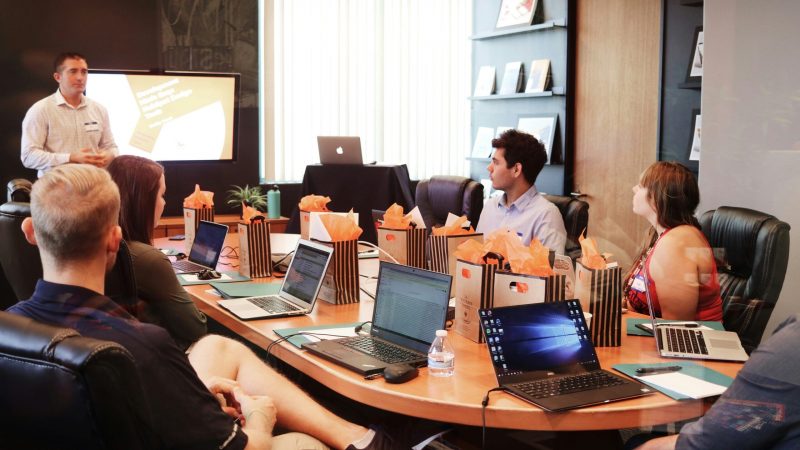With companies pouring cash into artificial intelligence, they’re taking no chances on unskilled AI help.
A new artificial intelligence management study illuminates a touchy subject for employers and their workers—the people who will actually run a business’s AI apps, tools, and technologies.
Recently, there’s been a rise in studies showing employees are growing more comfortable with AI and don’t view it as much of a threat anymore. There’s also a groundswell of support from C-level executives for training their in-house personnel on AI usage skills.
According to Deloitte’s latest CFO Signals Survey for the first quarter of 2024, senior management plans to accelerate training current staffers on AI usage inside the workplace.
In a bid for “digital fluency” inside their companies, most chief financial officers say their goal is to train and develop existing talent instead of hiring external talent, Deloitte reported.
“Talent continues to bubble to the top of these conversations — from both a concern and an opportunity perspective,” says Steve Gallucci, national managing partner, U.S. CFO program at Deloitte. “This quarter’s report reveals CFOs’ recognition of the importance of digital fluency both in the enterprise and in their own finance organization — although the pace of adoption may vary. Longer term, it appears that digital skills will likely become increasingly integrated into the finance team’s toolkit and CFOs’ suite of responsibilities.”
Not So Fast
Only weeks later, a separate study by the Adecco Group tells a different story.
“More than half of companies surveyed in some of the world’s leading economies plan to recruit new talent to cope with the mass adoption of artificial intelligence rather than retrain existing workers,” the report stated.
The Adecco report, titled “Leading Through the Great Disruption,” tracked 2,000 leaders across nine countries. The report stated that 66% of respondents plan to “buy” AI-skilled talent externally, against 34% who said they will upskill current staffers inside their companies.
That scenario would likely lead to a surge in AI upskilling programs, driven as much by anxious employees as it does performance-driven management.
“Artificial Intelligence is emerging as a great disrupter in the world of work, and the current path is unsustainable,” says Denis Machuel, chief executive officer of the Adecco Group. “Companies must do more to reskill and redeploy teams to make the most of this technological leap and avoid unnecessary upheaval. Buying your way out of disruption should not be the only approach companies take.”
Adecco is careful to say global executives aren’t lining up unskilled workers for pink slips, but the study also points to a blended approach, where companies will seek outside assistance for certain AI tasks (like DevOps and data center expertise) and upskill current employees in key areas like finance, compliance, logistics, and research and development.
Buy Versus Build
This “buy versus build” strategy has money flying out the door for external and internal AI skills help.
“62% of leaders saying they will hire data literacy experts externally, compared with 36% saying they will reskill or upskill teams,” the study notes. “Similarly, 60% plan to hire to fill digital literacy gaps compared with 37% who say they will build up capability in this area.”
Adecco also says that as time goes by, there are no guarantees those pink slips won’t stack up.
“Business leaders foresee significant upheaval across the wider labor market, with only 46% saying they will redeploy employees whose jobs are lost because of AI,” the study notes. “Further ahead, 41% said they will employ fewer people within five years because of the technology.”
For now, a clear majority of executives say the “human touch” is still more influential than AI in the workplace, especially in areas tasked with “creativity and innovation” needs.
“It’s imperative that leaders not only urgently deploy AI upskilling but also ensure it is implemented safely and responsibly by keeping people firmly at the center of this transition,” Machuel says. “AI should be a tool that supports people’s unique creative potential and enables more time for strategic thinking and problem-solving.”
Brian O’Connell, a former Wall Street bond trader and best-selling author, is a prominent figure in the finance industry. With a substantial background as an ex-Wall Street trader, he has authored two best-selling books: ‘The 401k Millionaire’ and ‘CNBC’s Creating Wealth’, demonstrating his profound knowledge of finance and investing.
Brian is also a finance and business writer for esteemed national platforms and publications, including CNN, TheStreet.com, CBS News, The Wall Street Journal, U.S. News & World Report, Forbes, and Fox News.




